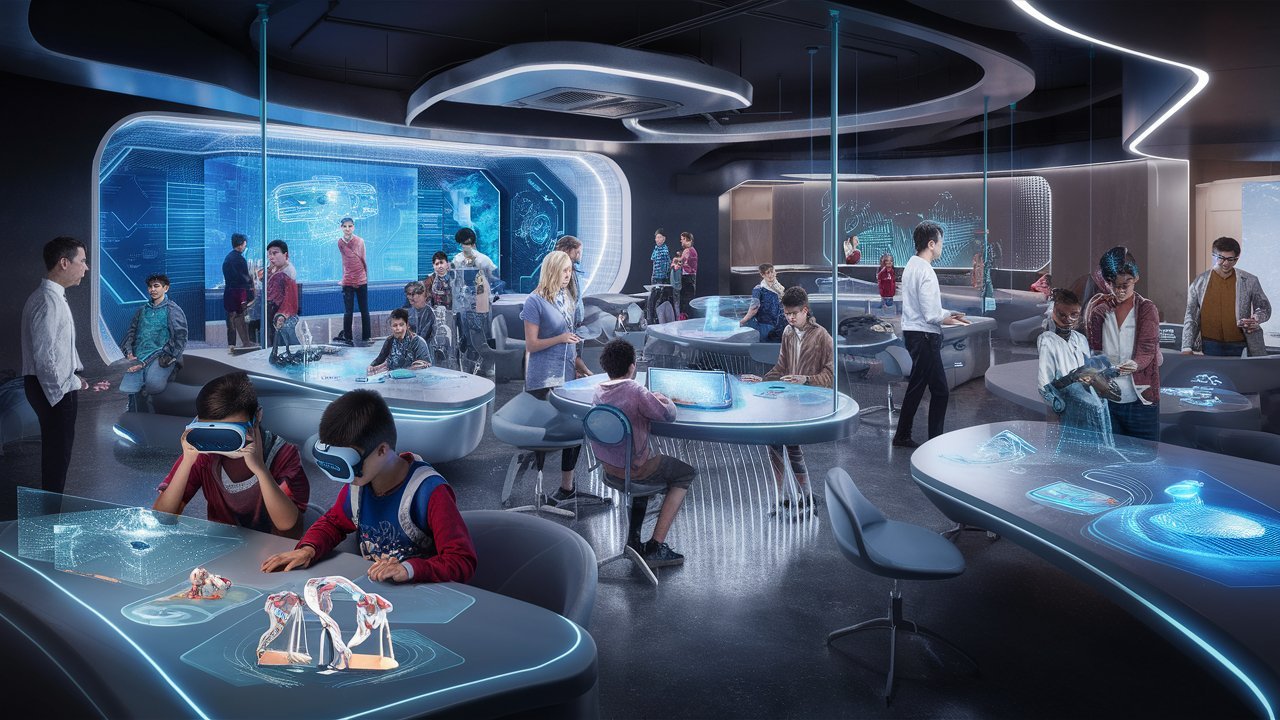In the rapidly evolving landscape of education, Nova Scola stands as a beacon of innovation, reshaping how knowledge is delivered, absorbed, and applied. Rooted in the fusion of traditional academia and cutting-edge technology, Nova Scola is more than just an institution—it’s a transformative educational movement. This article delves into the core philosophy, digital learning methodologies, and impactful results of Nova Scola, highlighting why it is emerging as a leader in the global education revolution.
What Is Nova Scola? Understanding the Concept Behind the Name
The term “Nova Scola” is derived from Latin, meaning “New School.” This reflects the organization’s dedication to creating a new model of education—one that prioritizes adaptability, inclusivity, and innovation. Unlike traditional schools that rely solely on static curriculums, Nova Scola embraces personalized learning experiences, technological integration, and global collaboration.
At its core, Nova Scola represents a paradigm shift in how education is perceived and practiced, breaking the barriers between teacher and student, classroom and world, theory and real-world application.
The Philosophy of Nova Scola: Redefining Learning for the 21st Century
Nova Scola operates on the belief that education should be dynamic, not static. In a world defined by technological advancement and social change, the ability to learn, unlearn, and relearn is crucial. The Nova Scola philosophy emphasizes:
-
Learner-Centered Approach: Every student is unique, and their learning journey should reflect that individuality. Nova Scola tailors educational paths based on student interests, goals, and abilities.
-
Technology as an Enabler: From AI-driven tutoring systems to interactive virtual classrooms, technology is not a replacement for teachers but a partner in education.
-
Global Mindset: Nova Scola fosters an international perspective, connecting learners from diverse backgrounds to exchange ideas and collaborate on global issues.
-
Lifelong Learning: Education doesn’t stop at graduation. Nova Scola nurtures a lifelong curiosity, ensuring that students remain adaptable and relevant in changing industries.
This holistic educational model has made Nova Scola synonymous with academic excellence and innovation.
Digital Transformation in Education: The Nova Scola Advantage
One of the most defining features of Nova Scola is its digital-first approach. As the world transitions to hybrid and remote learning, Nova Scola leverages cutting-edge EdTech solutions to create a seamless, interactive environment for students worldwide.
Key Technological Innovations at Nova Scola
-
AI-Powered Learning Platforms: Adaptive AI systems analyze each student’s learning patterns, providing personalized content, assessments, and feedback.
-
Virtual Reality (VR) Classrooms: Through immersive VR experiences, students explore complex concepts in science, art, and history as if they were part of them.
-
Blockchain Credentials: Nova Scola utilizes blockchain for secure digital certifications, ensuring transparency and authenticity in academic achievements.
-
Collaborative Learning Hubs: Online hubs connect students globally, promoting real-time collaboration and cross-cultural learning.
These innovations not only enhance engagement but also prepare students for the digital economy, where skills like critical thinking, problem-solving, and digital literacy are paramount.
Nova Scola’s Curriculum: Blending Knowledge and Real-World Skills
The curriculum at Nova Scola transcends the boundaries of traditional education. It integrates academic excellence with practical skill development, creating well-rounded individuals ready to thrive in the modern workforce.
Core Curriculum Components
-
STEM Education: Emphasis on Science, Technology, Engineering, and Mathematics equips students with analytical and computational skills.
-
Arts and Humanities: Encouraging creativity, empathy, and ethical reasoning, balancing the technical with the emotional.
-
Entrepreneurial Mindset: Students are taught to think critically, innovate, and take initiative, cultivating leadership and independence.
-
Environmental and Social Responsibility: Nova Scola instills awareness of sustainability and social justice, empowering students to make meaningful contributions to society.
Through this interdisciplinary curriculum, Nova Scola ensures students are not just learners but global change-makers.

The Role of Educators at Nova Scola
Educators at Nova Scola are not merely instructors—they are mentors, guides, and innovators. They undergo continuous professional development to stay aligned with emerging pedagogical trends and technological tools.
Teaching Methods that Inspire
-
Project-Based Learning (PBL): Students engage in real-world projects, applying theoretical knowledge to practical scenarios.
-
Flipped Classrooms: Lessons are studied at home via video lectures, while classroom time focuses on discussion and collaboration.
-
Experiential Learning: Students gain hands-on experience through internships, workshops, and research initiatives.
By merging innovation with empathy, Nova Scola’s educators ensure that every learner achieves their fullest potential.
Global Reach and Community Impact of Nova Scola
Nova Scola’s influence extends far beyond classrooms. With partnerships across multiple continents, it connects learners, educators, and institutions to build a universal network of education and opportunity.
The Nova Scola Global Network offers:
-
International Exchange Programs for cultural and academic collaboration.
-
Scholarship Initiatives promoting equality and accessibility.
-
Community Outreach Projects that empower underprivileged communities through education and digital literacy.
This global commitment cements Nova Scola’s position as a pioneering institution shaping the future of global education.
Challenges and the Future Vision of Nova Scola
While Nova Scola’s progress is monumental, the journey toward universal digital education comes with challenges—digital divide, affordability, and curriculum adaptation. However, Nova Scola’s forward-thinking approach continues to address these issues through research, innovation, and inclusivity.
The future vision of Nova Scola revolves around expanding its AI capabilities, strengthening global partnerships, and developing sustainable educational ecosystems that can adapt to any technological or cultural shift.
Conclusion: Nova Scola and the New Era of Learning
Nova Scola embodies the future of education, where technology, inclusivity, and human potential converge. It challenges outdated models, empowers learners globally, and creates a bridge between knowledge and innovation. In this new educational era, Nova Scola represents not just a school, but a movement toward a smarter, more connected world.
As education continues to evolve, Nova Scola remains at the forefront—inspiring minds, transforming lives, and redefining the meaning of learning.
Frequently Asked Questions (FAQ)
1. What makes Nova Scola different from traditional schools?
Nova Scola combines AI-driven learning, global collaboration, and personalized education models to deliver a modern, interactive experience unlike traditional classrooms.
2. Is Nova Scola an online platform or a physical institution?
Nova Scola operates through a hybrid model, offering both digital learning platforms and physical campuses to ensure flexibility and accessibility.
3. How does Nova Scola support lifelong learning?
Through ongoing professional development courses, micro-credentials, and global learning communities, Nova Scola encourages continuous education beyond graduation.
4. Who can join Nova Scola?
Nova Scola welcomes students, educators, and professionals worldwide, aiming to make quality education accessible to all.
5. What is Nova Scola’s mission for the future?
Nova Scola’s mission is to redefine education globally, merging innovation, technology, and inclusivity to prepare learners for the challenges of tomorrow.
